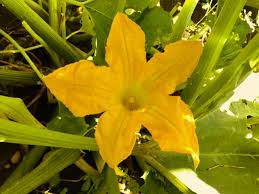The Tomato Juice: Economic Importance, Uses, and By-Products
Tomato juice is a popular beverage made from the liquid extracted from ripe tomatoes. It is known for its refreshing taste, nutritional benefits, and versatile uses in both culinary and health contexts.
Tomato juice serves as a base for many culinary preparations, especially soups, sauces, and cocktails. Its rich flavor, combined with its natural acidity and sweetness, enhances the taste of dishes like tomato soup and pasta sauces. In cocktails, such as the Bloody Mary, tomato juice provides a savory and tangy base that complements alcoholic spirits and other flavorings.
Tomato juice is prized for its nutritional content. It is a rich source of vitamins, particularly vitamin C, which supports immune function, and vitamin A, important for vision and skin health. The juice also contains minerals like potassium, which helps regulate blood pressure, and antioxidants such as lycopene, known for its potential health benefits, including reducing the risk of certain chronic diseases.
Consuming tomato juice is associated with various health benefits. Studies suggest that regular intake of tomato products, including juice, may contribute to heart health by reducing cholesterol levels and improving blood vessel function. The presence of lycopene in tomato juice is linked to antioxidant properties that may protect against oxidative stress and inflammation, potentially lowering the risk of conditions like cardiovascular disease and certain cancers.
Tomato juice is available in different varieties, ranging from freshly squeezed to commercially processed options. Fresh tomato juice is typically made by pressing ripe tomatoes and filtering out the pulp and seeds, resulting in a smooth liquid. Commercially prepared tomato juices often undergo pasteurization to ensure safety and extend shelf life. Some products may include added seasonings or other vegetables for flavor enhancement.
Apart from its role as a beverage or culinary ingredient, tomato juice finds application in various non-food uses. Its acidic nature makes it useful for cleaning and removing stains. Additionally, tomato juice extracts are used in cosmetic products for their antioxidant properties, promoting skin health and protection.
Tomato juice is not only a flavorful and versatile beverage but also a nutritious addition to the diet. Its culinary uses span from soups to cocktails, while its nutritional profile supports overall health with vitamins, minerals, and antioxidants. As research continues to uncover its health benefits and culinary potential, tomato juice remains a popular choice for consumers seeking both refreshment and wellness benefits.
The Economic Importance and Uses of Tomato Juice

1. Beverage Industry: Tomato juice is a key product in the beverage industry, enjoyed as a refreshing drink.
2. Nutritional Value: Rich in vitamins A, C, and K, as well as antioxidants like lycopene, tomato juice contributes to a healthy diet.
3. Health Benefits: Consumed for its potential health benefits, including heart health and immune support due to its nutrient content.
4. Culinary Ingredient: Used in cooking for soups, sauces, and marinades, adding depth and flavor.
5. Cocktail Mixer: Tomato juice is a base ingredient in cocktails such as Bloody Mary and Virgin Mary.
6. Export and Import: Countries engage in the trade of tomato juice, contributing to international commerce.
7. Dietary Supplements: Extracts from tomato juice are used in supplements for their antioxidant properties.
8. Pharmaceutical Research: Studied for potential medicinal uses, including anti-inflammatory and anti-cancer properties.
9. Cosmetics Industry: Tomato juice extracts are used in skincare products for their antioxidant benefits.
10. Hospitality Industry: Served in hotels, restaurants, and airlines as a beverage option for guests.
11. Agricultural Utilization: Waste from tomato juice production can be used as fertilizer or animal feed.
12. Food Innovation: Inspires new product development in the food and beverage sector, including blended juices and health drinks.
13. Culinary Education: Used in culinary schools to teach about beverage preparation and ingredient utilization.
14. Consumer Demand: Consumer preference for healthy beverages drives the market for tomato juice.
15. Dietary Restrictions: Suitable for individuals with dietary restrictions, including vegetarian and vegan diets.
16. Community Health Programs: Used in nutrition programs and initiatives to promote healthy eating habits.
17. Sports and Fitness: Consumed by athletes and fitness enthusiasts for its nutrient content and hydration benefits.
18. Sustainable Practices: Supports sustainable agricultural practices when sourced from organic or eco-friendly farms.
Read Also: What Do Bees Use Honey For
The Products and By-products That Can Be Derived From Tomato Juice

1. Bottled Tomato Juice: Ready-to-drink tomato juice available in bottles and cans.
2. Tomato Juice Concentrate: Concentrated form used in food processing and beverage production.
3. Blended Juices: Mixed with other fruit or vegetable juices for unique flavor combinations.
4. Soup Base: Used as a base for tomato soup and other soup recipes.
5. Cocktail Mixers: Essential ingredient in cocktails such as Bloody Mary and Clamato.
6. Marinades and Sauces: Used in cooking for marinades, pasta sauces, and barbecue sauces.
7. Ice Cubes: Frozen into cubes for use in drinks without diluting flavor.
8. Flavored Waters: Mixed with water for a refreshing infused beverage.
9. Smoothies: Blended with fruits and vegetables for nutritious smoothie recipes.
10. Tomato Extracts: Concentrated extracts used in supplements and pharmaceuticals.
11. Tomato Powder: Dehydrated and ground into powder for culinary and nutritional applications.
12. Food Coloring: Natural red coloring extracted from tomato juice used in food products.
13. Culinary Additives: Used as a flavor enhancer and nutritional supplement in various food products.
14. Skin Care Products: Tomato juice extracts used in cosmetics and skincare for their antioxidant properties.
15. Biofuels: Research into using tomato juice by-products for biofuel production.
16. Animal Feed: Residual pulp and seeds from juice production used as nutritious animal feed.
17. Organic Fertilizers: Waste materials from tomato juice processing used to enrich soil fertility.
Read Also: What Do Honey Bees Look Like
Frequently Asked Questions (FAQ’s) About Tomato Juice

1. What is tomato juice?
Tomato juice is a beverage made from the liquid extract of tomatoes.
2. What are the nutritional benefits of tomato juice?
Tomato juice is rich in vitamins A, C, and K, antioxidants, and dietary fiber, promoting overall health.
3. How is tomato juice made?
Tomatoes are crushed and strained to extract the juice, which is then pasteurized and bottled.
4. What is tomato juice used for in cooking?
It is used as a base for soups, sauces, marinades, and as a beverage mixer in cocktails.
5. Can tomato juice be consumed raw?
Yes, tomato juice can be consumed fresh or used as an ingredient in various recipes.
6. Is tomato juice beneficial for heart health?
Yes, tomato juice contains lycopene and other antioxidants that may support heart health.
7. Can tomato juice be used in skincare?
Yes, tomato juice extracts are used in skincare products for their antioxidant and skin-brightening properties.
8. Is tomato juice suitable for vegetarians and vegans?
Yes, tomato juice is suitable for vegetarian and vegan diets as it is plant-based.
9. How should tomato juice be stored?
Store tomato juice in a cool, dry place or refrigerate after opening to maintain freshness.
10. Where can tomato juice be purchased?
Tomato juice is available at supermarkets, health food stores, and online retailers specializing in beverages and groceries.
Read Also: Environmental Management Tips for Sustainable Living









